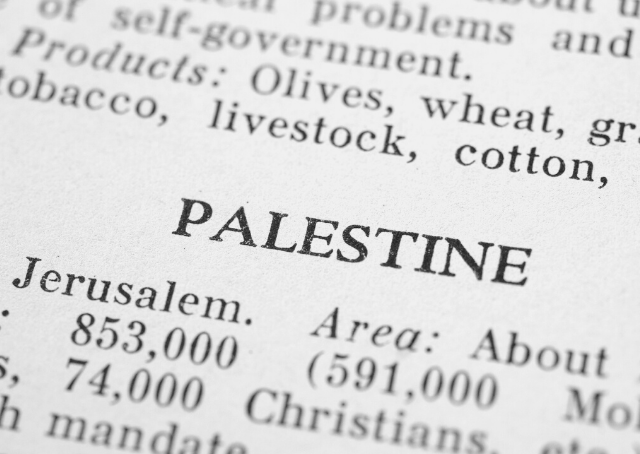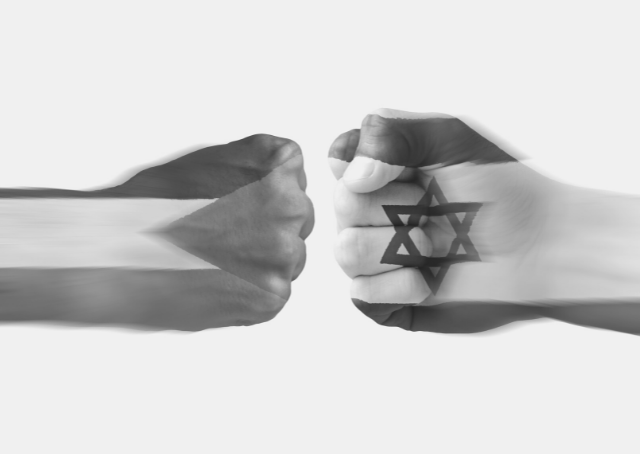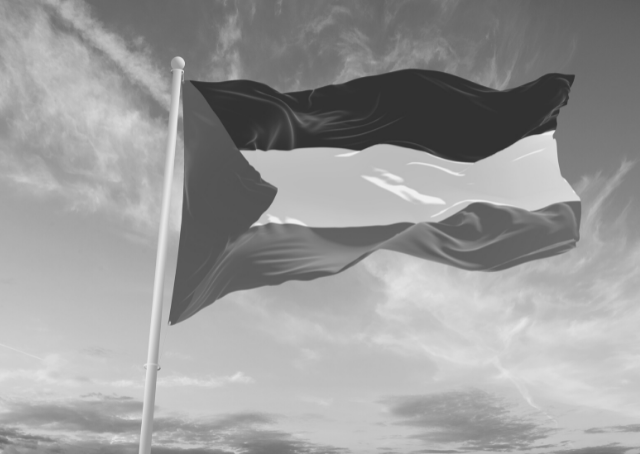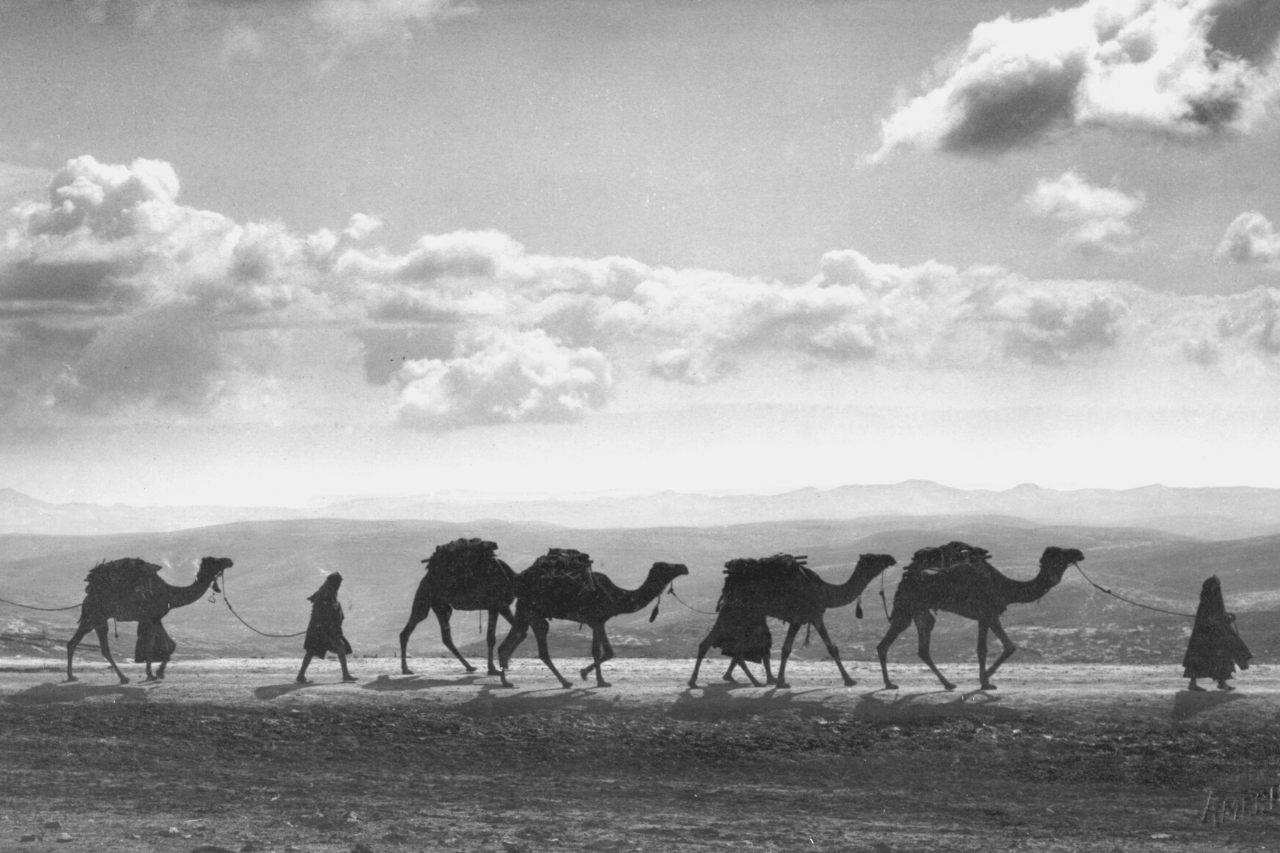Palestine's History: A Country on the Crossroads of Faith
Palestine's history unveils an incredibly turbulent part of the historical and political side of the Middle East. Marked by perennial invasions and military conflicts with its neighbors, particularly Israel, Palestine is located on the crossroads of major world religions like Judaism, Christianity, and Islam.
Specifically, Palestine is composed of two parts: the West Bank, which is west of the Jordan River within Israel's territory, and the Palestinian region of the Gaza Strip along the eastern Mediterranean Sea.
Palestinians are the people who have lived in Palestine over the years. They are culturally known as Arab people who occupy the two regions allotted for them despite numerous wars and disengagement.
History of Palestine
The word Palestine is from the Greek word Philistia, which was coined by Greek writers pertaining to the land of the Philistines in the 12th century B.C. This territory is located in the southern region of Israel between Tel Aviv and Gaza.
Ancient Palestinians were recognized in manuscripts written by renowned Greek writers, including Herodotus, the father of history, who wrote about a “district of Syria, called Palestine.”
Following him were classical scholars who acknowledged the presence of Palestine in the region. These scholars include Aristotle, Polemon, and Pausanias. Further, even Roman writers like Ovid and Pliny the Younger were aware of the existence of the land.
Additionally, Philo of Alexandria and Josephus were the Roman Judean writers who contributed to the historical background of Palestine.
It was eventually called the Roman province Syria Palaestina after the Jewish Bar Kochba revolt and the destruction of Jerusalem in 133 AD, and during the Byzantine period, Palestine was used to describe the area called Palaestina Prima. According to the ancient Palestinian records, the territory comprises most of the famous biblical territories in the region, like the Land of Israel or the much-revered Holy Land.
These details are probably causing you to have more interest in digging into Palestine's history timeline because of the invaluable and sacred heritage attached to it.
Geographically, Palestine represents the southern part of the region, including Canaan and Syria in modern times. This can perhaps answer the puzzle you have been thinking about in terms of the importance of Palestine in world history, religion, politics, and culture.
Palestine is situated at the intersection of Egypt, Syria, and Saudi Arabia. Having been connected to the origin of the Holy Land, it’s recognized as the birthplace of two major world religions: Judaism and Christianity. You may have been astonished by the grand story behind Palestine as time unfolds the significance it plays in world history.
You can discover more when you learn that Palestine’s role comes at the price of an uneasy relationship with its neighboring countries. The origin of Palestine unveils a violent background as it has been controlled by several peoples.
The region has fallen under different hands in foreign control, including the Ancient Egyptians, Canaanites, Israelites, Judeans, Assyrians, and Babylonians during the ancient period and the Arabs, Mongols, and Ottomans in early modern Palestine.
In addition, you might also recall that the British took control of the region, followed by modern Israelis, Jordanians, and Egyptians. Looking at its history, Palestine might seem too small of a territory to be attacked so profusely by bigger nations.
Extended political war has ravaged the country, but its people never gave up. Its territorial boundaries have changed over time, but Palestine remains a formidable symbol of strength and power.
Moving forward to the contemporary era, it may sound complicated but modern Palestine before Israel began during the decline of the Ottoman Empire, during which the people settled in the region between the Mediterranean Sea and the Jordan River. At first, the Palestinian people lived at peace with their neighbors, including Jews who also lived in the land. However, due to Zionism and Jewish immigration into the land in larger and larger numbers beginning in 1882, Palestinians often lived in hostility because of their persistent conflict with the Jews - and later with the modern state of Israel after it was founded in 1948.
You don’t need much time to travel around Palestinian territory because it is so tiny, and much of its land is occupied by Israel. You can find the West Bank between Israel and Jordan, whereas the Gaza Strip is located between Israel and Egypt.
It should be noted that 135 members of the United Nations acknowledge Palestine as an independent nation. However, Israel, the US, and other countries are opposed to this proposition.
The history of the Palestinians has shown that throughout their lifetime, they have been under the regime of several neighboring nations like the Babylonians, Greeks, Persians, Assyrians, Arable, Seljuk Turks, and the like. You should also consider the emergence of the Ottoman Empire, which took power from 1517 to 1917.
The Palestinians thrived in their small territory, but the British power formally took control after World War I had ended. How did this happen? Britain was given a mandate by the League of Nations to be in charge of the territory of Palestine beginning in 1923.
The perpetual chaos and political skirmish between the two territories eventually led Britain to withdraw its control of the region on April 29, 1948, citing economic exhaustion as well as a lack of capacity to maintain its extensive power.
The Palestinian Land Was Divided
Palestine before 1947 had been under British occupation. Still, due to continuous animosity between the Jewish and the Palestinian people, the United Nations proposed the founding of a separate state for the Palestinian Arabs and their Jewish neighbors.
The creation of Palestine and its division formally established an independent Jewish state and an independent Arab state. Intended for everyone’s peace, Jerusalem, the capital city, claimed by both the Jews and the Palestinian Arabs, would be considered an international region with a special status.
This proposition was accepted by the Jewish leaders but was opposed by the Palestinian Arabs, who argued that they needed more than 42% of the land.
Israel Became a State
After the Partition Plan for Palestine and Israel was declared, Britain immediately withdrew its troops from the region. Consequently, Israel delightedly declared itself an independent state with its willingness to implement the Partition Plan ordered by the United Nations.
This declaration of statehood was not favored by Israel’s Arab neighbors, who mobilized forces to impede the establishment of the state of Israel. You now have a substantial confirmation of why a long-standing war exists in the region.
Armed with diplomatic, economic, religious, and political interests, Israel and Palestine have been entangled in a constant military campaign. To add more chaos, five neighboring Arab nations also joined the war, namely, Jordan, Iraq, Syria, Egypt, and Lebanon, because they clearly denounced the establishment of the Israeli state.
You may also consider the Six-Day War, which crippled the region beginning on June 5, 1967. This military move started when Israel launched an aerial attack against Egypt. The war resulted in the inclusion of Syria and Jordan, both of which took the side of Egypt against Israel.
The outcome of the 1967 Arab-Israeli War would lead to continued tension and an armed conflict between Israel and its neighbors over the coming decades.
The Role of the Palestinian Liberation Organization
In defense of the Palestinian entitlement over their territory, the Palestinian Liberation Organization (PLO) was created in 1964 for the sole purpose of strengthening the liberty and rights of the people and aiming for the downfall of the Israeli State. The Palestinians claimed that they deserved the territory administered to them under the British Mandate. In addition, the PLO also claims that Israel illegitimately occupies their territory.
To better understand the timeline of the history of Palestine, you should know that in the 1993 Oslo Accords, the PLO recognized and accepted the legal rights of Israel to exist as a state. This happened in exchange for the Israeli state’s formal recognition of the PLO. This stage marked an optimistic development in the relationship between the rival territories.
Consequently, Yasser Arafat, an eminent Palestinian leader, became the Chairman of the PLO, who played a remarkable role in the relationship between Israel and Palestine.
Violence and the Oslo Accords
The creation of Palestinian sovereignty has wreaked more havoc in the region. In 1987, more protests were staged to denounce the division and alleged unfair separation of territories.
You have to understand why the Palestinians were furious about Israel’s control of Gaza and the West Bank. Frequent terrorist strikes had been done to denounce the aggressive moves of Israel, resulting in hundreds of people being killed.
To promote peace in the region, a truce called the Oslo Peace Accords was initiated in the 1990s in a diplomatic and multilateral attempt to end the violence. To agree, Prime Minister Yitzhak Rabin and the Palestinian leader Yasser Arafat met and signed the accords.
Unfortunately, however, the Oslo Accord did not succeed in fostering a peace plan due to a series of violent acts that incessantly occurred in the region.
More Violence Occurred in the Region
You may be disappointed by what happened to the relationship between Israel and Palestine because instead of having a peace agreement, more violence took place in the region.
The Palestinians felt insulted in the process, particularly when Ariel Sharon, the former Israeli Prime Minister, visited the Muslim holy site at the al-Aqsa Mosque in Jerusalem.
In retaliation, more massive riots, demonstrations, suicide bombings, and aggressions broke out, which ended the ambitious dream of a truce. It took five years for Israel to pacify the region. Yasser Arafat died in November of 2004, which opened the door for the withdrawal of the Israeli army from Gaza.
Another strong political power also exists in Palestine. It’s called Hamas, a militant group led by Sunni Islamic members who won the Palestinian legislative elections in 2005. You may have predicted the next event, but fighting between Hamas and Fatah, the political group that controlled the PLO, emerged.
Many countries consider Hamas a terrorist organization because they seem to be responsible for the series of suicide bombings and destruction of Israel.
Hamas and Israel have been in violent wars. Many people have died in this chaotic territorial and political dispute, but Israel and Palestine are not willing to give up.
You may be surprised that Hamas and Fatah suddenly agreed to a pact that would establish a unified Palestinian government. In April 2014, Hamas and Fatah eventually made a deal that would establish a unified national Palestinian government.
Economy in Palestine
Economic conditions in the West Bank and Gaza Strip were influenced by Muslim traders from neighboring countries and the existing territorial laws between Palestine and Israel. It was easier to find employment before when Israel still allowed thousands of Palestinians to enter Israel itself and work construction, farming, agriculture, and other menial jobs.
However, you may find it hard to find a job in the Palestinian territory nowadays as Israel has closed the gates to protect the state from the perpetual attacks of terrorists. As a result, a shortage of workers has been felt in Israel. That’s why the country started importing manpower from Thailand, the Philippines, Romania, and elsewhere.
The Current State of Palestine
You need to know the present situation of Palestine, as well as the rights that they are fighting for. First of all, you should take into consideration that the Palestinians are still at war with Israel. They are longing for an official state formally and legally recognized by all countries in the world.
One cause of confusion is the continued presence of Israeli settlers in the West Bank despite the fact that that territory has officially been awarded to the Palestinian group.
Although these people are civilians, the army may have a problem in this confrontation because the borders are not specifically defined. In other words, conflicts that may lead to bloody wars may not be restrained.
Some international civil rights movements have studied the status of Palestinians in their territory, along with the continued presence of the Israeli settlers, and they all agree that it’s illegal because the borders are not clearly defined when compared to the violence occurring in their territories. So experts are looking for ways to settle this feud and eventually promote peace in the region.
The Israeli settlers themselves are often able to live peacefully alongside Palestinians in the West Bank, but the Israeli army as well as ongoing racial prejudice both perpetuate the cycle of oppression and violence there.
Recognition by International Organizations
After a long wait, 138 out of 193 members of the United Nations have recognized the State of Palestine. It has been given the status of a non-member observer state, which was major progress in its status in the United Nations and the world. This move was also considered a recognition of the Palestinian Liberation Organization’s sovereignty.
Later on, you can imagine the celebration of the Palestinians when the UN Chief of Protocol, Yeocheol Yoon, announced the new designation of the region as the State of Palestine on December 17, 2012. Since then, the United Nations has changed all documents pertaining to Palestine to the “State of Palestine.” The Secretariat thus recognized the title “State of Palestine” as the most appropriate one.
Further, on December 23, 2015, the United Nations General Assembly passed a resolution recognizing Palestinian sovereignty over the natural resources in the regions included in the Palestinian territories but under Israeli occupation. The UN council called on Israel to cease the damage, abuse, and destruction and endangerment of Palestinian natural resources. You can call it a big win for the Palestinians when the resolution was passed by 164 votes to 5.
Palestinian Flag Raised in the United Nations
The controversial existence and the active presence of Palestine in the United Nations is a triumph for the state. Palestinian representatives at the United Nations passed a draft resolution allowing non-member observer states like Palestine and the Holy See to raise their respective flags at the United Nations headquarters.
In the end, the Holy See was denied the petition, but Palestine received 119 votes against 8, with 45 countries abstaining.
Despite the opposition of a handful of UN members, the motion to raise the Palestinian flag gained the support of the majority of the members, particularly the UN Secretary-General Ban Ki-Moon, who stated that the event was a “day of pride for the Palestinian people around the world, a day of hope.”
It was indeed a timely decision for Palestine to be honored in the midst of escalating political upheaval in its territory. Likewise, it’s a time to restore peace and order in the region after many years of annihilation.
Conclusion
Palestine is a tiny geographical area located between the Mediterranean Sea and the Jordan River. You have read its long and tumultuous history marred by perpetual attacks on its people and natural resources.
This persistent political chaos has caused the loss of a vast number of lives. It is home to the Arab people known as Palestinians, who have an earnest dream of establishing an independent state in the middle of a turbulent Muslim territory.
After having fought for its statehood for a long time, Palestine gained a big win with the United Nations resolution recognizing it as a state was approved on July 19, 2019. This is all thanks to the 138 UN members who advocated for the independence of Palestine as a legitimate state. They believe that a minority group is capable of forming a sovereign state regardless of its political or religious affiliation.
Throughout history, Palestine has been ruled by numerous groups of people who have shaped its culture, history, politics, and economy. Although it is deeply influenced by the Islamic faith, Palestinians honor the presence of other major religions in their territory, acknowledging the fact that their country lies at the crossroads of faith.














